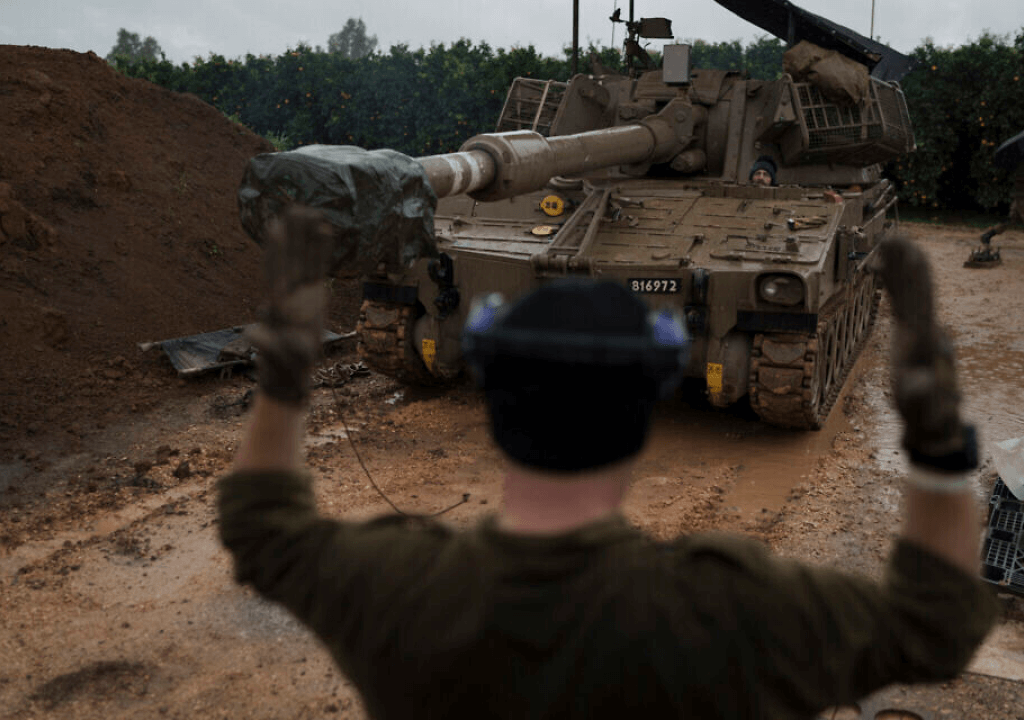There was a time when all Arab Islamic neighbors were a threat to Israel. There was a time when all Arab Islamic neighbors surrounding Israel decided to vanish the Jewish country from the Earth. There was a time when all the neighbors were the hope for an Islamic country in a land now called Israel. But now, it all seems like sleeping in history books. Arab Islamic nations, once advocated for Islamic solidarity and the liberation of Palestine from the river to the sea, now merely issue statements in support of Palestinians who face retaliation from Israel for terrorist attacks by Hamas, the rulers of Gaza. Egypt, once a major Arab power, is no longer prominently involved. Jordan and Syria are not capable without Egypt. Saudi Arabia, Turkey, and Iran, though they all claim to be the leader of Islamic nations, have not challenged Israel like Egypt once did, and possibly never in future. So Israel’s borders with Saudi Arabia, Egypt, and Jordan are all safe now. But the border with Lebanon, which is home to a large Palestinian population and the terrorist organization Hezbollah, which has close ties with Hamas, poses a heavy risk for Israel. It’s certain that while Israel works on security issues with Hamas, they will also deal with threats from Hezbollah, possibly leading to cross-border attacks into Lebanon, and another Israel-Lebanon war soon.
The Israeli Foreign Minister, Israel Katz, affirmed a possible escalation of war with Lebanon, stating that a decision on an all-out war with Hezbollah was imminent. Israeli generals announced late on Tuesday that they had finalized plans for an offensive into Lebanon. These statements are considered as part of Israel’s efforts to ensure public support for the war before the attack in Lebanon, where Hezbollah is perceived, a threat to people in Israel. The escalating rhetoric followed the release of video footage from a Hezbollah surveillance drone’s overflight of the northern city of Haifa, which included images of sensitive sites and civilian neighborhoods. The broadcast of the footage was widely interpreted as a thinly veiled threat against Haifa and comes amid ongoing cross-border exchanges between the two sides. Northern Israel faced the most intense barrage of the conflict from Hezbollah last week following the Israeli operation that resulted in the death of a senior Hezbollah commander. Following threats by Hezbollah chief Sayyed Hassan Nasrallah to target Haifa’s ports, Katz stated in a post on X: “We are approaching the moment of deciding to change the rules of the game against Hezbollah and Lebanon”. He stated that, In a full-scale war, Hezbollah will face destruction, and Hezbollah’s host Lebanon will endure serious consequences.
Israel’s military later announced, “Operational plans for an offensive in Lebanon have been approved and validated, with decisions made to further increase troop readiness in the field”. Minister Katz’s comments came as the IDF announced on Tuesday that it had approved battle plans for Lebanon. During an assessment, IDF generals approved “Operational plans for an offensive in Lebanon”, including “Accelerating the readiness of forces on the ground”. Israel is considering the Hezbollah drone footage as a warning that they are capable of an attack similar to what Hamas carried out last year. The warnings came hours after Hezbollah released nine minutes of drone footage gathered from its surveillance overflight of locations in Israel, including residential areas. The distribution of the footage was highlighted by the Lebanese armed movement, including on its Telegram channel, urging viewers on several platforms to “Watch and Analyze” what it described as “Important Scenes.”
Even though a full-scale war between Israel and Lebanon has not occurred since the 2006 war, tension between Israel and Hezbollah has always been present despite their agreements on ceasefire. Since the Hamas attack on Gaza, there have been ongoing skirmishes between them. Over the past eight months, Hezbollah has deployed surveillance and attack drones into Israel, engaging in fire exchanges with the Israeli military concurrently with the Gaza conflict. The decision to broadcast footage, which included images of residential and military sites in and around Haifa, including port facilities, seemed aimed as much at an Israeli audience as at a wider international one. Sayyed Hassan Nasrallah stated in November that they had been sending surveillance drones over Haifa. Curiously, the release of this footage seemed to coincide with the visit of US envoy Amos Hochstein to Lebanon, which followed his meetings with senior Israeli officials, including Prime Minister Benjamin Netanyahu, the day before. The US called for “urgent” de-escalation of the cross-border exchanges of fire between Hezbollah and Israeli forces that have been ongoing since the start of the Gaza conflict. However, tensions escalate without showing down. Last week, Hezbollah launched hundreds of drones and rockets, with more than 200 fired on a single day, prompting Israeli military strikes on Hezbollah targets in response.
The latest exchange of threats between the two sides came as the US and France worked on a negotiated settlement to the hostilities along Lebanon’s southern boundary with Israel. The conflict between Israel and Hezbollah has endured for an extended period. It’s best to resolve it quickly and diplomatically, that is both achievable and urgent. However, Israel’s mission for safety will not be completed if they only tame Hezbollah. Hamas, Hezbollah, and Shiite militias in Syria can all be seen as a threat to Israel. But The level of support from Western countries for an escalation of war will be crucial. Netanyahu has dissolved the war cabinet to gain more control in the conflict, enjoying support in opinion polls. Upcoming conflict may also serve to deflect attention from previous corruption charges and public discontent during Netanyahu’s rule extension. Therefore, a possible conflict with Hezbollah is imminent and it seems likely and could lead to an Israel-Lebanon war, causing further destruction in Lebanon.








